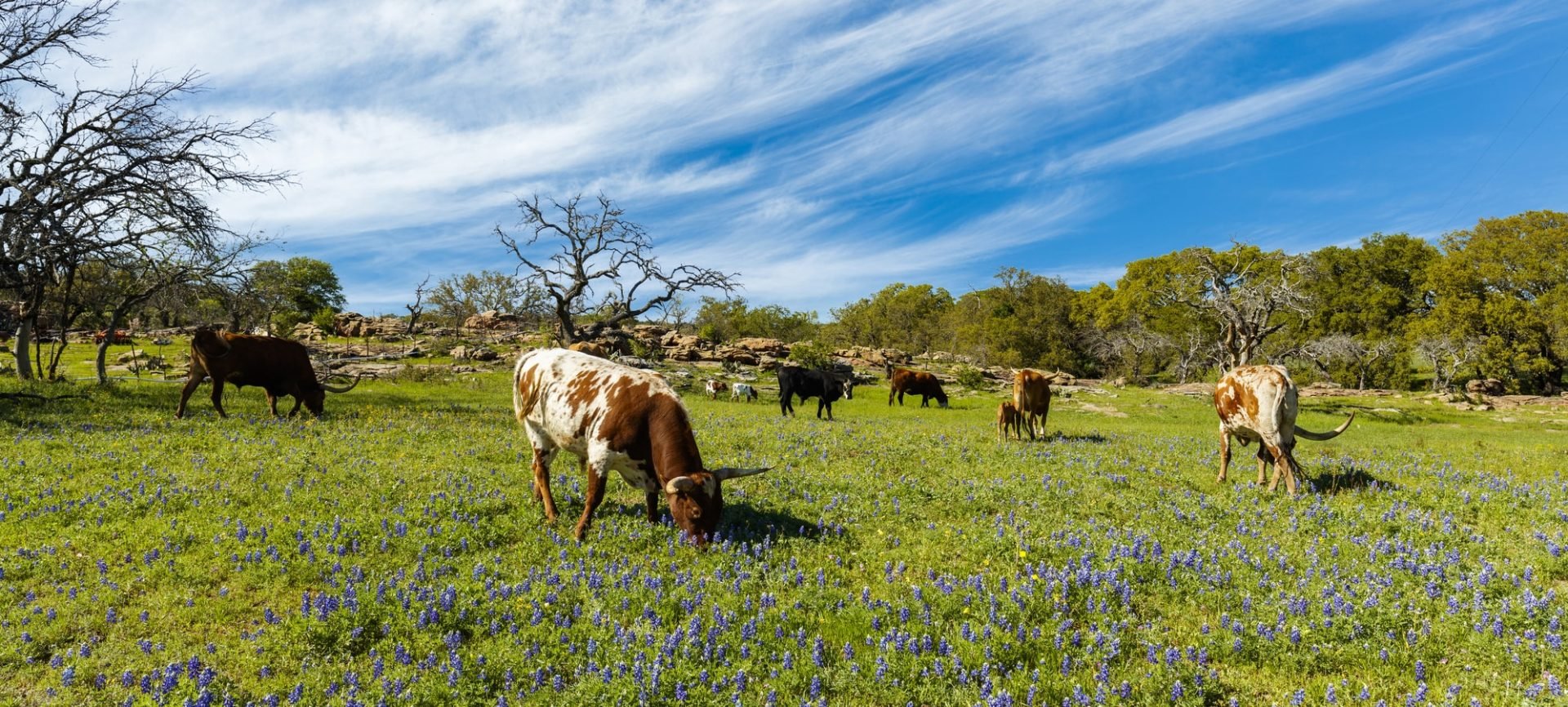Is Livestock Farming Animal Cruelty?
Discover > Farm to Table Eating in Texas > Is Livestock Farming Animal Cruelty?
Today we want to talk to you about livestock farming and whether or not it is animal cruelty. There is plenty of debate over this question especially here in Texas where we have over 31 million heads of cattle! I mean, we have more cattle than the 2nd and 3rd place producers in the United States Combines! The answer can have varying shades depending on many factors.
Let's Define Livestock Farming, Shall We?
Let’s begin by making sure we have a clear grasp of the definition of livestock farming. The strict definition of livestock farming stipulates domesticated animals raised for the production of pleasure purposes. A domesticated animal is not limited to just pets as you may have previously thought. Beyond dogs and cats and household animals, a domesticated animal is any animal that depends on human beings for survival, meaning that animals fed and cared for by farmers fit that description perfectly. The production part of the definition means the generation of meat from slaughtered animals, or extractable elements such as dairy, wool, or eggs. The pleasure component of the definition refers to things like horses and mules raised for riding. The term livestock encompasses all cattle, birds, pigs, horses, and any other animal that would be found on a farm or ranch.
So, is Livestock Farming Animal Cruelty?
Now that we know exactly what livestock farming is, we can begin to answer the question of whether or not it should be considered animal cruelty. It is important to make a distinction between the industrial agriculture business and factory farming, and the work done on smaller independent farms. Industrial farming needs to be separated from non-industrial farming as the two follow completely different forms of animal treatment.
Industrial farming and factory farming are without a doubt forms of mass animal cruelty. The United Nations estimates that more animals are sent to slaughter than the entire human population of the earth eight times over. Animals in this industry are confined to small spaces, often with no outdoor access or sunlight whatsoever. They are fed unnatural diets of corn and soy in feedlots.
Illness and disease are commonplace on factory farms and these ailments spread uncontrollably and are often not caught or treated before the afflicted animals are processed into food and sent off to grocery stores around the country. These are just a few of the terrible ways that animals are treated by industrial farming corporations. For more information on the dangers of industrial farming, we have a lot of other videos that can shed more light on the TexasRealFood YouTube channel.On the other end of the spectrum, you will find smaller farms and ranches that treat their animals far more humanely. There are plenty of farmers who raise their animals with the utmost care, placing the priority on their animal’s happiness. These farms do not practice any of the cruel methods employed by factory farms and feedlots. Some would contend that even these more humane farms are still participating in animal cruelty, albeit in a lesser form when compared to factory farms. At Texas Real Food we don’t agree with this viewpoint.
We consider animal cruelty to be any treatment that does not give animals what they need and or does not allow them to express their natural tendencies. Thankfully there are plenty of farms that abstain from these kinds of treatments. A cattle farmer whose cows roam and graze on a pasture is not practicing animal cruelty. A cow’s natural diet is grass and its natural tendencies include grazing and roaming through fields and pastures. A cow’s needs and tendencies are fulfilled, leading to a happy life for the livestock.
Pasture-Raised Meats, the Highest Standard for Animal Treatment
Farms that practice pasture raising are typically the highest standard for animal treatment. Some farms that make free-range claims can still be participants in animal cruelty. The USDA requirements for a free-range certification are loose and easily exploited. Some non-humane farms claim their chickens are free-range, simple because the overcrowded coops are fitted with windows that chickens can pop their heads through to get direct sunlight. These farms can and should be considered as practicers of animal cruelty.
The closer a farm’s treatment of an animal comes to its natural conditions and requirements, the more humane it is. The same can be said of the inverse. The farther away from nature an animal’s treatment gets, the crueler it is. You can think of it as a sliding scale of animal treatment. Factory farms are at the extreme negative end, and pasture raising humane farms are at the extreme positive end.
There is certainly animal cruelty in the livestock farming business, a rightly concerning amount. However, it is painting with too broad of a brush to say that all livestock farming is cruel. Many well-intentioned farmers make it a point of pride to ensure the humane treatment of their animals. Happy farm animals result from well-treating independent farms and ranches.
In the mood for Cruelty-Free Grass-Fed Meat? Check out our list of 9 local farms and ranches providing grass-fed meat delivery in Texas.
If you learned something or found something useful, then do us a favor and like this video on YouTube. We would love to hear your opinions, so head on down to the comment section and join the conversation.
Sources:
Britannica
Animal Equality Org
Do happy animals produce better food?
ASPCA
Certified Humane
Food and Water Watch
Cunningham Pastured Meats
Looking for fresh, grass-fed meat delivery in Texas? Well, your search is over. Click here!


